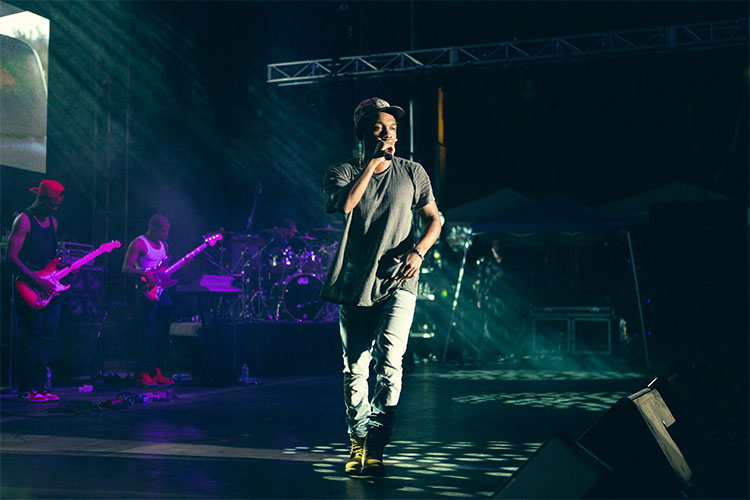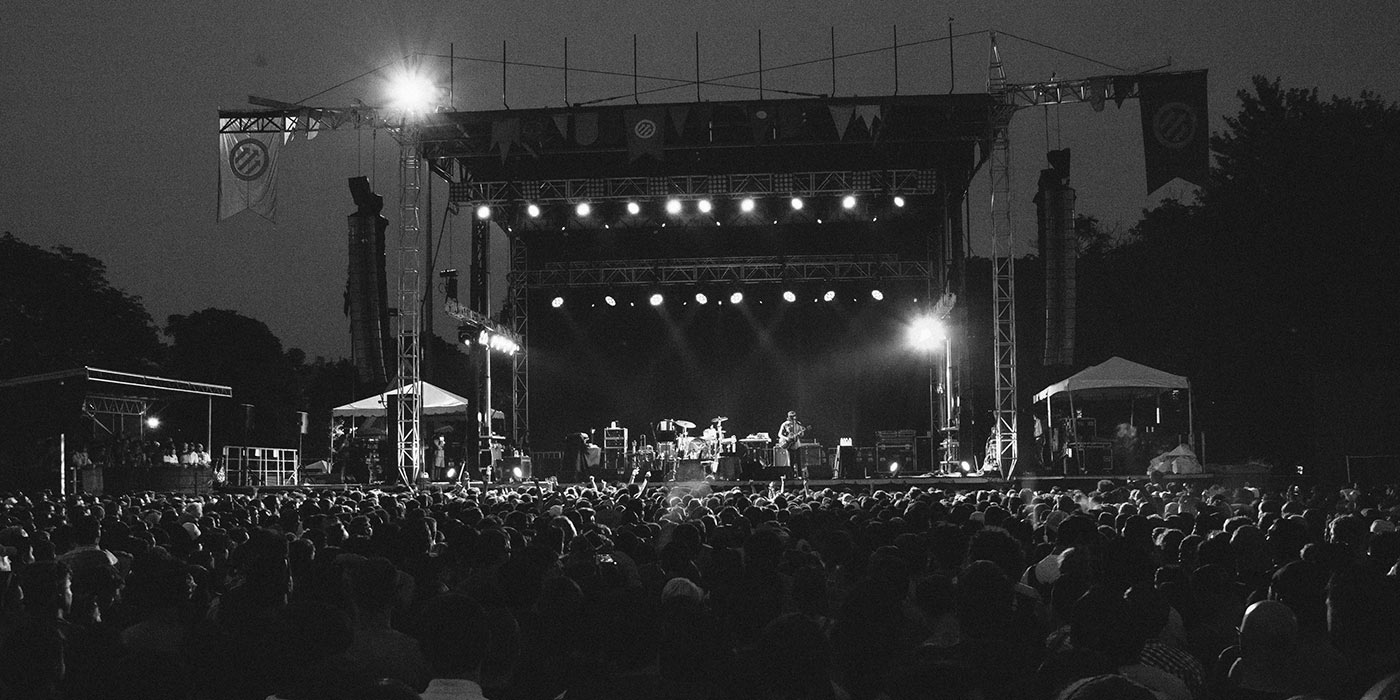Most music festivals save their headlining slots for artists with long, fruitful careers—and rightfully so. In order to bring in the crowds, you’ve got to bring in a musician who can keep them captivated. This year Bonnaroo boasted big-time slots for Kanye West, Elton John, and Jack White; Coachella highlighted sets by OutKast, Muse, and Arcade Fire. In the last two years alone, Pitchfork Music Festival has saved the prime real estate for Feist, R. Kelly and Björk.
This year, Pitchfork took a different route by awarding two of their three headlining spots to artists who are each essentially known for one album. On Saturday, the recently reunited Neutral Milk Hotel closed down Union Park, playing choice cuts from their indie-god-status-album In the Aeroplane Over the Sea. And on Sunday, Kendrick Lamar closed down the entire city of Chicago with renditions of hits from his instant-classic good kid, m.A.A.d city.
In an era where “Best of” compilations can be created at the click of a button and where artists’ entire discographies can be explored with a streaming app, this may appear to be a poorly thought-out decision. But it wasn’t. Like the headliners’ masterpieces, the choice was a carefully crafted one that played out brilliantly for the audience.
Neutral Milk Hotel didn’t allow press into the photo pit for their set on Saturday night, nor did they allow Pitchfork to stream the show online. They didn’t use the big screens for the fans in the nosebleeds, either. And they kindly requested that showgoers refrain from taking photos on their cellphones. If there is one album that deserves as intimate of a performance as you can get on a headlining stage at a festival, In the Aeroplane Over the Sea is it. And Pitchfork was about to deliver it.
The set itself proved to be a splendid one, but I think the fact that the performance happened at all overshadowed the actual music. I can’t speak for the other longtime fans, but this is a set I thought I’d never see. And while it didn’t leave me emotionally crushed, it did leave me feeling awfully satisfied.
From where I was standing it looked like frontman Jeff Mangum had been growing his beard since he went into hibernation in 1999, yet the bird’s nest didn’t muffle the syllables spewing from his nasally, joyous voice. The rest of the band was sloppy at times, but it fit: Aeroplane is a ramshackle affair filled with house-invented instruments and a blown-out brass section. If you put Mangum over “traditionally pretty” music, there’d simply be no magic.
The band blazed through 10 of the 11 Aeroplane tracks and added a handful of On Avery Island cuts for good measure. I haven’t listen to Aeroplane in probably three years but the weightier moments (“Two-Head Boy Pt. 2” and the title track) drove me to tears and left me feeling about as overwhelmed as they used to, when I would listen alone in my bedroom.
Whether attendees had waited 15 years or just a few months to hear Aeroplane live, I imagine a lot of us in the crowd had the same experience. There was something spectacular about coming together as a community to celebrate an album that’s half about being in love and half about Anne Frank. It felt strange—and beautiful—to be there, and to think about being anything at all. [spacer height=”10px”]

Kendrick Lamar brought a different kind of party to Pitchfork on Sunday night; it was one that most people would say resembled, well, an actual party. I caught King Kendrick at Pitchfork two years ago, when all he had released from good kid, m.A.A.d. city was first single “Swimming Pools (Drank).” To keep it quick, I wasn’t impressed.
Since that set, however, Kendrick has dropped the most important rap debut since Kanye West’s The College Dropout, making his headlining set seem not only feasible but earned. And Kendrick deservingly played his role, fleshing out the stage with a full band, filling up the video screens with slowed-down footage from his music videos, and performing without the aid of a single guest.
From the first few lines of “Money Trees” onwards, the crowd was at his will, going bonkers on “F*ckin Problems” and “Backseat Freestyle” and bobbing away to “Poetic Justice.” Though good kid isn’t even two years old, its songs feel like old friends. And though Kendrick played most of the album in an order unfamiliar to the audience, the set still flowed seamlessly as he weaved in and out of his Compton-set story.
Kendrick took a step back to watch the crowd at the end of his set when he played “Sing About Me, I’m Dying of Thirst.” He asked the audience members to pull out their cellphones and lighters and remember the moment, remember him. It was a cliché moment, but he pulled it off brilliantly. As he walked off stage he repeated that he’d be back, and we believed him.
Like Neutral Milk Hotel’s set, Kendrick’s was a testament—not only to the record he made, but also to our ability as listeners to relate to it. LPs may not be the main form of music we seek out anymore, but they still speak to us; they allow us to connect with an art form, and with one another. The record may soon die off, and it may not. If it does, however, Pitchfork 2014 gave it a pretty spectacular, deserving send-off.



